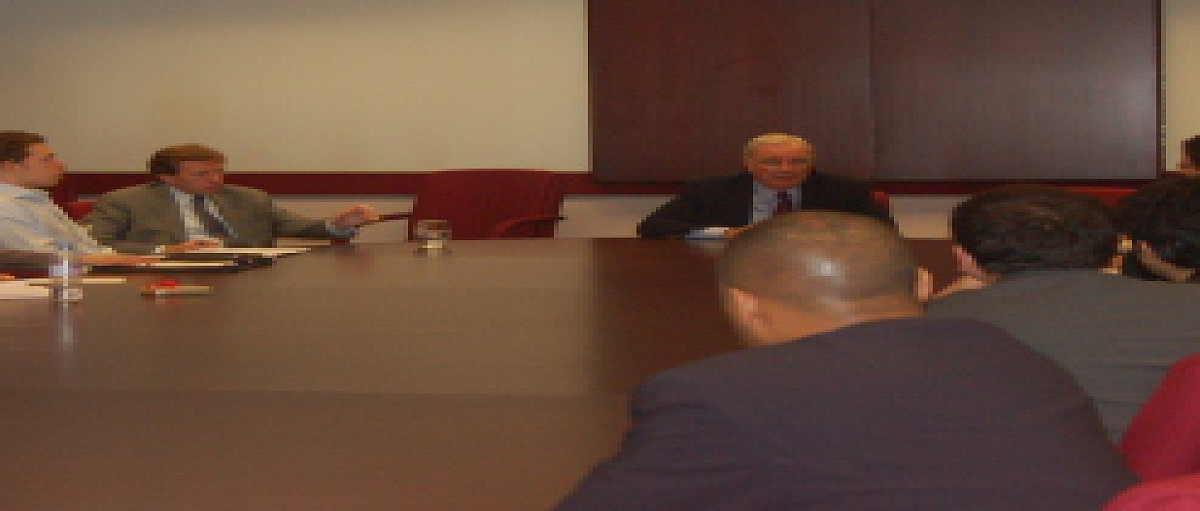On April 16th, Professor Cheryl S. McWatters launched the Father Edgar Thivierge Speaker Series with an engaging and wide-ranging dialogue with the Right Honourable Mr. Martin. It was a rare opportunity for students to meet informally with Mr. Martin to discuss Aboriginal education, business, and entrepreneurship.
Mr. Martin served as Canada’s 21st Prime Minister from 2003 to 2006; our Minister of Finance from 1993 to 2002, and represented Lasalle-Émard, Quebec as its Member of Parliament from 1988 until his retirement from politics in 2008. Since his retirement from politics, he has devoted his energies, through the Martin Aboriginal Initiative, to working with our First Nations, Inuit and Métis peoples to enhance their quality of life, educational and economic outcomes, while respecting and protecting their identity and traditions. Beyond our borders, Mr. Martin co-chairs the Congo Basin Rainforest Fund, sits on the advisory council of the Coalition for Dialogue on Africa, and is a member of the IMF’s Western Hemisphere Regional Advisory Group.
Discussions of post-colonial legacies in Dr. McWatters’ MBA course,The Global Context of Business: Merchants, Traders, Capitalists and Profit Seekers, provided the impetus to invite Mr. Martin to meet with her students to share his insights into one of the most critical challenges facing our nation – and future business leaders – how to ensure our Aboriginal peoples reap the social and economic benefits enjoyed by other Canadians. We were honoured to have our University President, Mr. Allan Rock, in attendance to introduce Mr. Martin and to participate in the discussions.
Mr. Martin opened with comments on the importance of business history, and linked understanding of the past with many of the issues we presently face around the globe and within Canada. For the next 90 minutes, he spoke passionately about the UN’s mandate on The Responsibility to Protect (R2P) and how we, as Canadians, need to reflect on its meaning with respect to our own treatment of Aboriginal peoples. He offered wisdom in terms of how we might move ahead with our Aboriginal communities to ensure their participation as equal partners, recognising, embracing and celebrating their cultures. Mr. Martin also spoke on very practical terms of the need for education, funds for entrepreneurial activities, and specifics such as set-asides for procurement for Aboriginal businesses.
Those in attendance came from many parts of the globe, which played to Mr. Martin’s vast experience and work with global agencies and governments. We could have extended the discussion much longer; yet when we had to bring it to a close, we did so leaving much enriched for the experience.
For further information:
The Martin Foundation:http://www.paulmartin.ca/
The Martin Aboriginal Education Initiative (MAEI): http://mai-iam.ca/
The UN’s Mandate on The Responsibility to Protect: http://www.un.org/en/preventgenocide/adviser/responsibility.shtml




